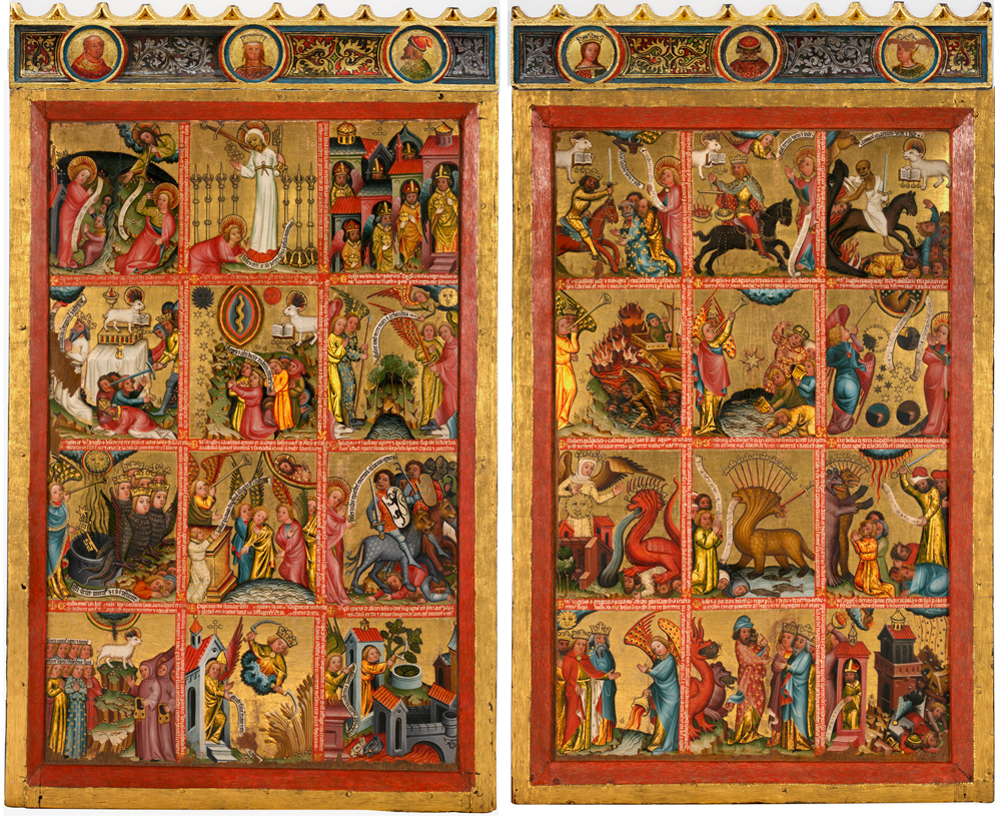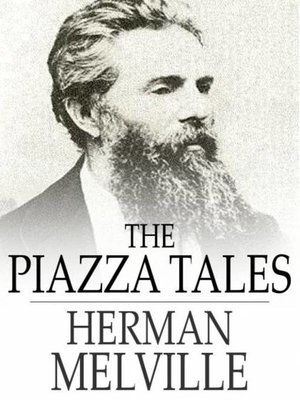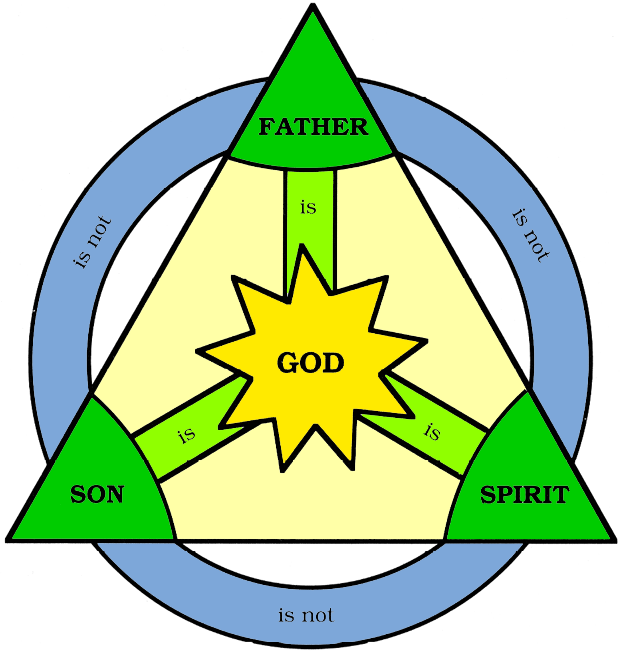Percy Bysshe Shelley's "Ode to the West Wind"

"Ode to the West Wind" is an ode, written by Percy Bysshe Shelley in 1819 near Florence, Italy. It was published in 1820 by Charles and James Ollier in London as part of the collection Prometheus Unbound, A Lyrical Drama in Four Acts, With Other Poems. Some have interpreted the poem as the speaker lamenting his inability to directly help those in England owing to his being in Italy. At the same time, the poem expresses the hope that its words will inspire and influence those who read or hear it. Perhaps more than anything else, Shelley, wanted his message of reform and revolution spread, and the wind becomes the trope for spreading the word of change through the poet- prophet figure. Some also believe that the poem is due to the loss of his son, William (born to Mary Shelley) in 1819. His son Charles (to Harriet Shelley) died in 1826, after"Ode to the West Wind" was written and published. The ensuing pain influenced Shelley. The poem allegorises the role of the poet as the voice of change and revolution. At the time of composing this poem, Shelley without doubt had the Peterloo Massacre of August 1819 in mind.
From Wikipedia, the free encyclopedia
Dylan Thomas' "Do Not Go Gentle into That Good Night "
"Do not go gentle into that good night" is poem in the form of a villanelle, and the most famous work of Welsh poet Dylan Thomas (1914- 1953). Though first published in the journal Botteghe Osure in 1951, it was actually written in 1947 when he was in Florence with his family. It was published, along with other stories previously written, as part of his In Country Sleep, And Other Poems in 1952. It has been suggested that it was written for Thomas' dying father, although he did not die until just before Christmas 1952. It has no title other than its first line, "Do not go gentle into that good night", a line which appears as a refrain throughout. Its other refrain is "Rage, rage against the dying of the light". The poem currently remains under copyright, but was made publicly available here at poets.org (with the copyright holder's permission).
From Wikipedia, the free encyclopedia
E.E. Cumming.

Edward Estlin Cummings (October 14, 1894 - September 3, 1962), known as E. E. Cummings, with the abbreviated form of his name often written by others in lowercase letters as e. e .cummings (in the style of some of his poems- see name and capitalization, below), was an American poet, painter, essayist, author, and playwright. His body of work encompasses approximately 2,900 poems, two autobiographical novels, four plays and several essays, as well as numerous drawings and paintings. He is remembered as an eminent voice of 20th century English literature.
From Wikipedia, the free encyclopedia
E. E. Cumming by "In Just"

One of Cumming's most famous poems, "in Just-" reveals the poet's typically experimental approach, avoiding all punctuation to emphasize the nonstop vitality of a season he describes as "mud-/ luscious" and "puddle-wonderful." A goat-footed balloonman whistles; children play hopscotch, jump-rope, and marbles; and the world celebrates the season that can only be described as "Just-spring." The poem is divided into five sections, with a format that matches the sense of dance and music that are described in the lyric. Contrasts are important - the slow tune of "Just-/ spring" and "mud-/ luscious" is juxtaposed with the speed of "and eddieanbill come/ running from marbles and/ piracies and it's/ spring." The poem, like the season, is a mixture of contrasts, from old balloonman to young children, from the slow, quiet time of growth to the rapid, explosive moments of ecstasy.
E. E. Cumming's "somewhere i have never travelled gladly beyond"

The poem details the profound feelings of love that the speaker has for his beloved, and his wonder over this mysterious power that the woman has over him. Over the course of the short poem, the speaker examines and praises this power, and notes how his beloved has transformed him. The speaker in the poem may or may not be cummings himself, although the intensity of emotion expressed in the poem leads one to believe that the poet is describing his own experiences. When cummings published "somewhere i have never travelled, gladly beyond," he had been married to Anne Barton for two years. While Barton might have been the source of the poem's inspiration, this inspiration would have been short -lived, for cummings and Barton divorced a years later, in 1932. A current copy of the poem can be found in E. E .Cummings; Complete Poems 1904-1962, which was published in hardcover by Liveright in 1994.
W. B. Yeats

William Butler Yeats (born on 13 June 1865 - 28 January 1939) was an Irish poet and one of the foremost figures of 20th-century literature. A pillar of both the Irish and British literary establishments, in his later years he served as an Irish Senator for two terms. Yeats was a driving force behind the Irish Literary Revival and, along with Lady Gregory, Edward Martyn, and others, founded the Abbey Theatre, where he served as its chief during its early years. In 1923, he was awarded the Nobel Committee described as "inspired poetry, which in a highly artistic from gives expression to the spirit of a whole nation". Yeats is considered to be one of the few writers who completed their greatest works after being awarded the Nobel Prize; such works include The Tower (1928) and The Winding Stair and Other Poems (1933).
From Wikipedia, the free encyclopedia
W. B. Yeats' "The Lake Isle of Innisfree"

"Lake Isle of Innisfree" is a twelve-line poem composed of three quatrains written by William Butler Yeats in 1888 and first published in the National Observer in 1890. It was reprinted in The Countess Kathleen and Various Legends and Lyrics in 1892 and as an illustrated Cuala Press Broadside in 1932. "Lake Isle of Innisfree" exemplifies the style of the Celtic Revival; it is an attempt to create a form of poetry that was Irish in origin rather than one that adhered to the standards set by English poets and critics. It received critical acclaim in the United Kingdom and France.
From Wikipedia, the free encyclopedia
The Second Coming (poem).

The Second Coming is a poem composed by Irish poet W. B. Yeats in 1919, first printed in The Dial in November 1920, and afterwards included in his 1921 collection of verses Michael Robartes and the Dancer. The poem uses Christian imagery regarding the Apocalypse and second coming allegorically to describe the atmosphere of post- war Europe. The poem is considered a major work of Modernist poetry and has been reprinted in several collections, including The Norton Anthology of Modern Poetry. The poem was written in 1919 in the aftermath of the First World War and the beginning of the Irish War of Independence that followed the Easter Rising, at a time when the British government was preparing to send in the Black and Tans to Ireland, and was at first entitled The Second Birth.
From Wikipedia, the free encyclopedia
Leda and Swan.

Leda and the Swan is a story and subject in art from Greek mythology in which the god Zeus, in the form of a swan, seduces or rapes Leda. According to later Greek mythology, Leda bore Helen and Polydeuces, children of Zeus, while at the same time bearing Castor and Clytemnestra, children of her husband Tyndareus, the King of Sparta. In the W. B. Yeats version, it is subtly suggested that Clytemnestra, although being the daughter of Tyndareus, has somehow been traumatized by what the swan has done to her mother. According to many versions of the story, Zeus took the form of a swan and raped or seduced Leda on the same night she slept with her husband King Tyndareus. In some versions, she laid two eggs from which the children hatched. In other versions, Helen is a daughter of Nemesis, the goddess who personified the disaster that awaited those suffering from the pride of Hubris. The subject was rarely seen in the large scale sculpture of antiquity, although a representation of Leda in sculpture has been attributed in modern times to Timotheos (compare illustration, below left); small scale sculpture survive showing both reclining and standing poses, in cameos and engraved gems, rings, and terracotta oil lamps.
From Wikipedia, the free encyclopedia
Geoffrey Chaucer.

Geoffrey Chaucer (1343 - 25 October 1400), known as the Father of English literature, is widely considered the greatest English poet of the Middle Ages and was the first poet to be buried in Poets' Corner of Westminster Abbey. While he achieved fame during his lifetime as an author, philosopher, an astronomer, composing a scientific treatise on the astrolabe for his ten years old son Lewis, Chaucer also maintained an active career in the civil service as a bureaucrat, courtier and diplomat. Chaucer's work was crucial in legitimizing the literary use of the Middle English vernacular at a time when the dominant literary languages in England were French and Latin.
From Wikipedia, the free encyclopedia
Book of Revelation.

The Book of Revelation, often known simply as Revelation or The Apocalypse of John, is a book of the New Testament that occupies a central place in Christian eschatology. Its title is derived from the first world of the text, written in Koine Greek: apokalypsis, meaning "unveiling" or "revelation". The Book of Revelation is the only apocalyptic document in the New Testament canon (although there are short apocalyptic passenges in various places in the Gospels and the Epistles). The book spans three literary genres; the epistolary, the apocalyptic, and the prophetic. It begins with John, on the island of Patmos in the Aegean, addressing a letter to the "Seven Churches of Asia". He then describes a series of prophetic visions, including figures such as the Whore of Babylon and the Beast, culminating in the Second Coming of Jesus Christ.
From Wikipedia, the free encyclopedia
Apocalypse.

An apocalypse, translated literally from Greek, is a disclosure of knowledge, i. e., a lifting of the veil or revelation. In religious contexts it is usually a disclosure of something hidden, "a vision of heavenly secrets that can make sense of something hidden, "a vision of heavenly secrets that can make sense of earthly realities". In the Book of Revelation, the last book of the New Testament, the revelation which John receives is that of the ultimate victory of good over evil and the end of the present age, and that is the primary meaning of the term, one that dates to 1175. Today, it is commonly used in reference to any prophetic revelation or so called end time scenario, or to the end of the world in general.
From Wikipedia, the free encyclopedia
Lilacs (Walker).

Lilacs for voice and orchestra (or Lilacs) is a musical composition by George T. Walker, Jr. (born 1922) tat awarded the 1996 Pulitzer Prize for Music. The work, scored for soprano soloist and orchestra, was the unanimous choice of the Pulitzer prize jury. Walker was the first African American composer to be awarded the prize. Walker set the 1865 poem, "When Lilacs Last in the Dooryard Bloom'd", by poet Walt Whitman. Whitman wrote the poem as an elegy to President Abraham Lincoln after his death on 15 April 1865. The composition was premiered by the Boston Symphony Orchestra on February 1, 1996. "The unanimous choice of the Music Jury, this passionate, and very American, musical composition... has a beautiful and evocative lyrical quality using words of Walt Whitman".
From Wikipedia, the free encyclopedia
When Lilacs Last in the Dooryard Bloom'd.

"When Lilacs Last in the Dooryard Bloom'd" is a long poem in the form of an elegy written by American poet Walt Whitman (1819- 1892)in 1865. The poem, written in free verse in 206 lines, uses many of the literary techniques associated with the pastoral elegy. It was written in the summer of 1865 during a period of profound national mourning in the aftermath of the assassination of President Abraham Lincoln on April 14, 1865. Despite the poem being an elegy to the fallen president, Whitman neither mentions Lincoln by name nor discusses the circumstances of his death. "When Lilacs Last in the Dooryard Bloom'd" was written ten years after publishing the first edition of Leaves of Grass (1855) and it reflects a maturing of Whitman's poetic vision from a drama of identity and romantic exuberance that has been tempered by his emotional experience of the American Civil War.
From Wikipedia, the free encyclopedia
Elegy.

In English literature, an elegy is a poem of serious reflection, typically a lament for the dead. The Greek term elegeia originally referred to any verse written in elegiac couplets and covering a wide range of subject matter (death, love, war). The term also included epitaphs, sad and mournful songs, and commemorative verses. The Latin elegy of ancient Roman literature was most often erotic or mythological in nature. Because of its structural potential for rhetorical effects, he elegiac couplet was also used by both Greek and Roman poets for witty, humorous, and satiric subject matter. In English literature, the more modern and restricted meaning, of a lament for a departed beloved or tragic event, has been current only since the sixteenth century; the broader concept was still employed by John Donne for his elegies, written in the early seventeenth century.
From Wikipedia, the free encyclopedia
O Captain My Captain.

"O Captain! My Captain!" is an extended metaphor poem written in 1865 by Walt Whitman, about the death of American president Abraham Lincoln. The poem was first published in the pamphlet Sequel to Drum- Taps which assembled 18 poems regarding the American Civil War, including another Lincoln elegy, "When Lilacs Last in the Dooryard Bloom'd". It was included in Whitman's comprehensive collection Leaves of Grass beginning with its fourth edition published in 1867.
From Wikipedia, the free encyclopedia
Leaves of Grass.
Leaves of Grass is a poetry collection by the American poet Walt Whitman (1819-1892). Though the first edition was published in 1855, Whitman spent most of his professional life writing and re-writing Leaves of Grass, revising it multiple times until his death. This resulted in vastly different editions over four decades- the first a small book of twelve poems and the last a compilation of over 400. The poems of Leaves of Grass are loosely connected, with each representing Whitman's celebration of his philosophy of life and humanity. This book is notable for its discussion of delight in sensual pleasures during a time when such can did displays were considered immoral. Where much previous poetry, especially English, relied on symbolism, allegory, and meditation on the religious and spiritual, Leaves of Grass (particularly the first edition) exalted the body and the material world. Influenced by Ralph Waldo Emerson and the Transcendentalist movement, itself on offshoot of Romanticism, Whitman's poetry praises nature and the individual human's role in it.
From Wikipedia, the free encyclopedia
Marianne Moore.
Marianne Craig Moore (November 15, 1887 - February 5, 1972) was an American Modernist poet, critic, translator, and editor. Her poetry is noted for formal innovation, precise diction, irony, and wit. Moore's first professionally published poems appeared in The Egoist and Poetry in the spring of 1915. Harriet Monroe, the editor of the latter, would describe them in her biography as possessing "an elliptically musical profundity". In 1916, she moved with her mother to Chatham, New Jersey, within commuting distance of New York; and in 1918, the two moved to New York City's Greenwich Village, where Moore socialized with many avant- garde artists, especially those associated with Others magazine. The innovative poems she was writing at that time received high praise from Ezra Pound , William Carlos Williams, H. D., T. S. Eliot, and later Wallace Stevens.
From Wikipedia, the free encyclopedia
Wallace Stevens.
Wallace Stevens (October 2, 1879 - August 2, 1955) was an American Modernist poet. He was born in Reading, Pennsylvania, educated at Harvard and then New York Law School, and he spent most of his life working as an executive for an insurance company in Hartford, Connecticut. He won the Pulitzer Prize for Poetry for his Collected Poems in 1955. Some of his best known poems include "Anecdote of the Jar," "Disillusionment of Ten O'Clock," " The Emperor of Ice-Cream," "The Idea of Order at Key West," "Sunday Morning," "The Snow Man," and "Thirteen Ways of Looking at a Blackbird."
From Wikipedia, the free encyclopedia
Ezra Pound.

Ezra Pound Loomis Pound (30 October 1885- 1 November 1972) was an expatriate American poet and critic, and a major figure in the early modernist movement. His contribution to poetry began with his development of Imagism, a movement derived from classical Chinese and Japanese poetry, stressing clarity, precision and economy of language. His best known works include Ripostes (1912), Hugh Selwyn Mauberley (1920) and the unfinished 120 section epic, The Cantos (1917-69)Working in London in the early 20th century as foreign editor of several American literary magazines, Pound helped discover and shape the work of American and Irish contemporaries such as T. S. Eliot, James Joyce, Robert Frost, and Ernest Hemingway.
From Wikipedia, the free encyclopedia
Moby - Dick.
Moby - Dick; or, The Whale is a novel by American writer Herman Melville, published in 1851 during the period of the American Renaissance. Sailor Ishmael tells the story of the obsessive quest of Ahab, captain of the whaler Pequod, for revenge on Moby Dick, the white whale which on an earlier voyage destroyed his ship and several his leg at the knee. The novel was a commercial failure and out of print at the time of the author's death in 1891, but during the 20th century its reputation as a Great American Novel was established. William Faulkner confessed he wished he had written it himself, and D. H. Lawrence called it "one of the strangest and most wonderful books in the world", and "the greatest book of the sea ever written".
From Wikipedia, the free encyclopedia
Ishmael (Moby Dick).
.jpg)
Ishmael is a fictional character in Herman Melville's Moby-Dick (1851), Ishmael, the only surviving crew member of the Pequod, is the narrator of the book. As a character he is a few years younger than as a narrator; as a character, he is only a minor participant in the action. The Biblical name has come to symbolize orphans, exiles, and social outcasts. Because he was the first person narrator, much early criticism of Moby-Dick either confused Ishmael with the author himself or overlooked him. From the mid twentieth century onward, critics distinguished Ishmael from Melville. They established Ishmael's mystic and speculative consciousness as a central force in the book in contrast to Captain Ahab's monomaniacal force of will.
From Wikipedia, the free encyclopedia
The Piazza Tales.

The Piazza Tales is a collection of six short stories by American writer Herman Melville, published by Dix & Edwards in the United States in May 1856 and in Britain in June. Except for the newly written title story, "The Piazza," all of the stories had appeared in Putnam's Monthly in 1853- 1855. The collection includes what has long been regarded as the author's three most imporatnt achievements in the genre of short fiction," Bartleby, the Scrivener", "Benito Cereno", and "The Encantadas", his sketches of the Galapagos Islands.
From Wikipedia, the free encyclopedia
The End of the World (Skeeter Davis).
"The End of the World" is a country and pop music hit song recorded by Skeeter Davis that enjoyed international success in the 1960s. "The end of the World" was written by Arthur Kent and Sylvia Dee; the latter drew on her sorrow from her father's death. Davis recorded her version on June 8, 1962, at the RCA Studios in Nashville, produced by Chef Atkins, and featuring Floyd Cramer. In the skeeter Davis version, after she sings the whole song through in the key of B-flat, the song goes up by a half step to the key of B, were Skeeter speaks the first two lines of the final stanza, before singing the rest of the stanza, ending the song.
From Wikipedia, the free encyclopedia
THE END OF THE WORLD by Skeeter Davis
Funeral Blue
Vocabulary.
1. Petal: 花瓣
2. Sowed: 播撒
3. Reaped: 被收割的

4. Perennial: 多年生植物

5. Anniversary: 週年紀念日
6. Annual Fee: 年費;維持費;續展費

7. Annuity: 年金;養老金;年金保險
8. Trinity: 三位一體;三倍;三人一組

沒有留言:
張貼留言